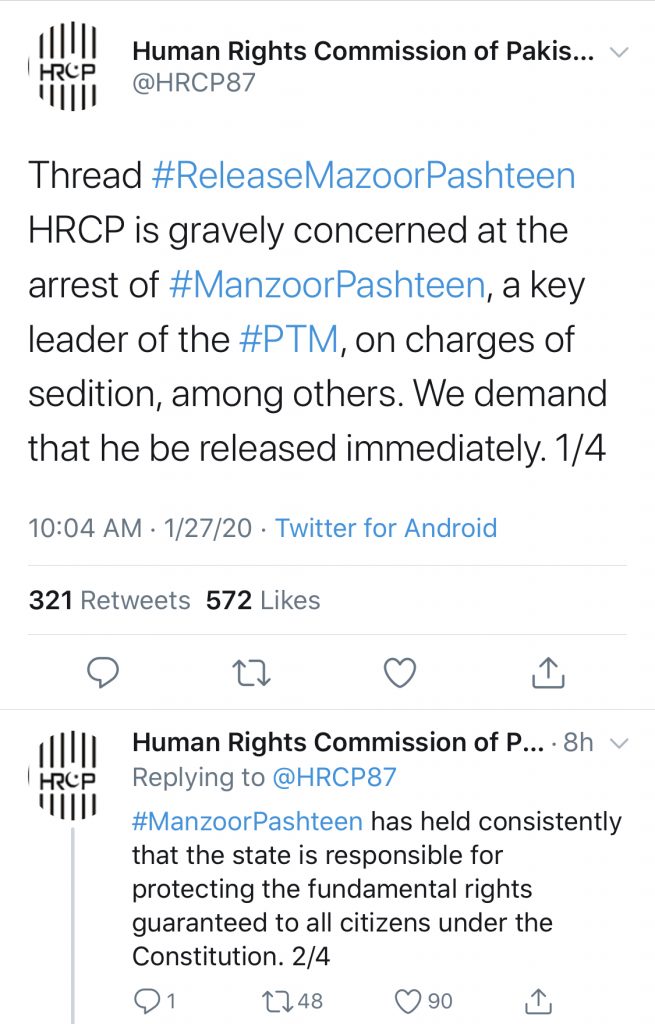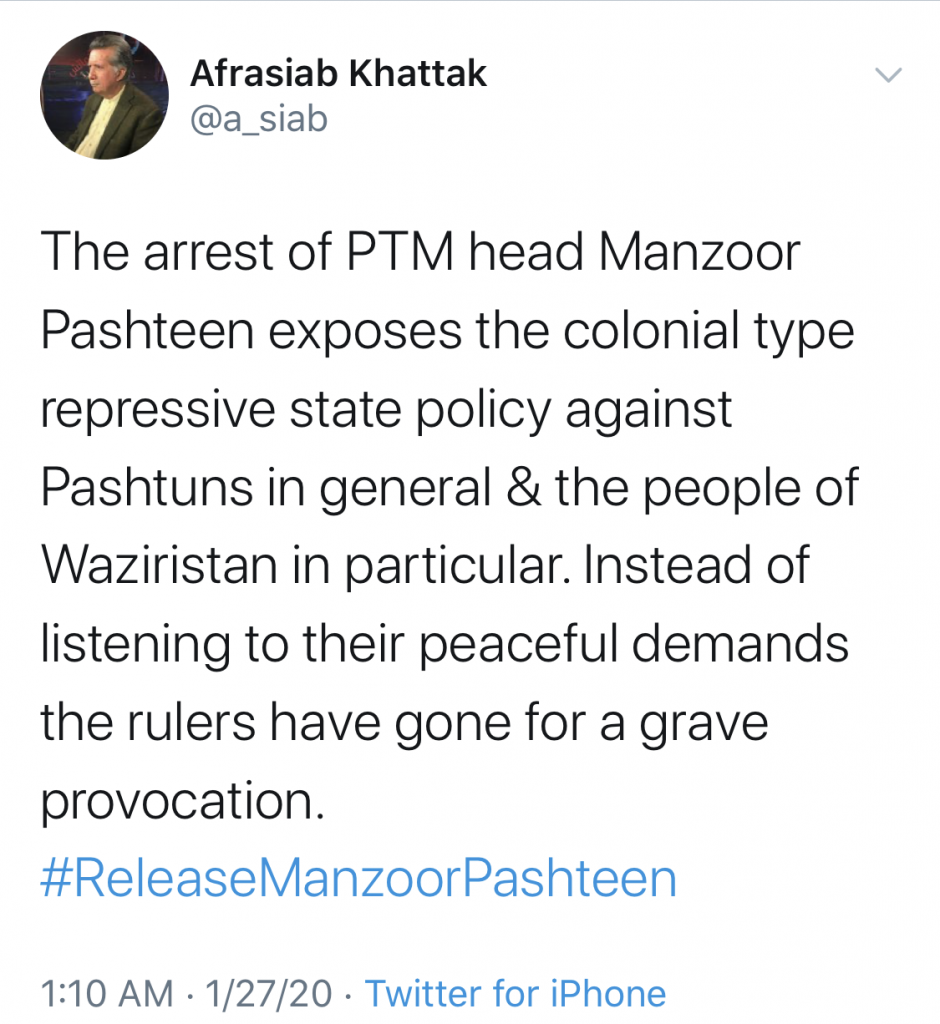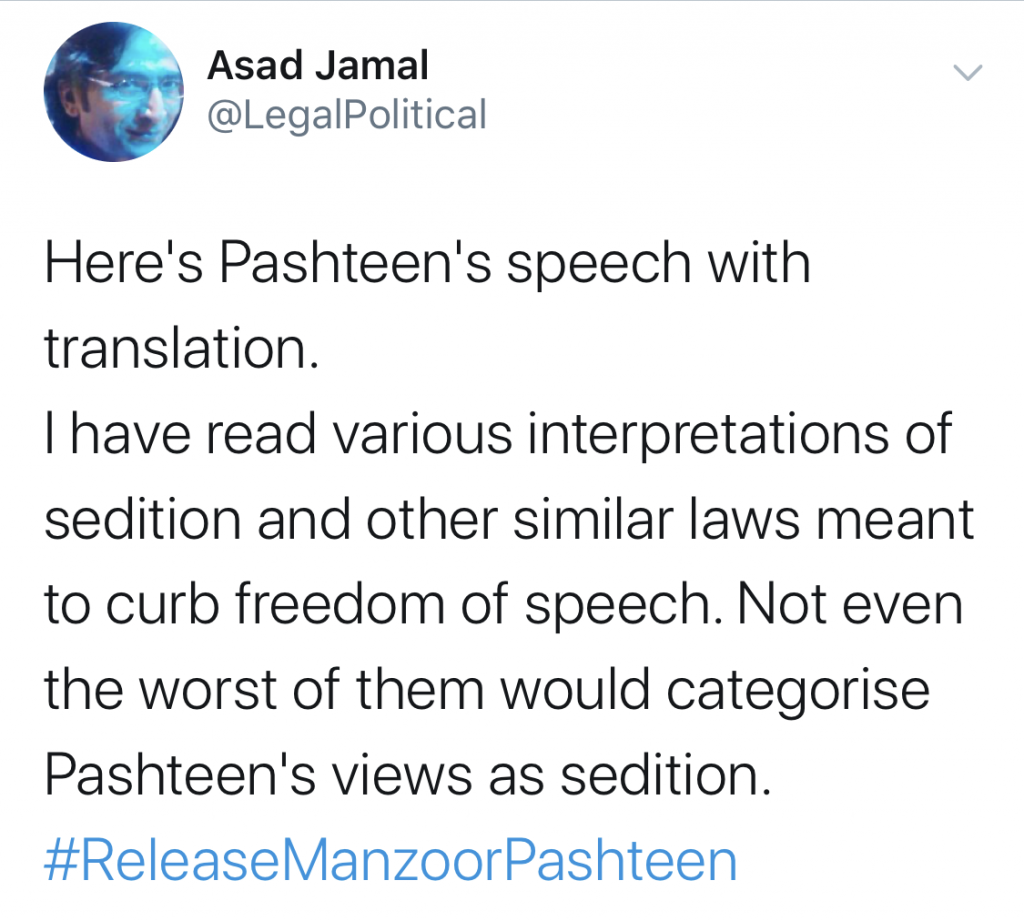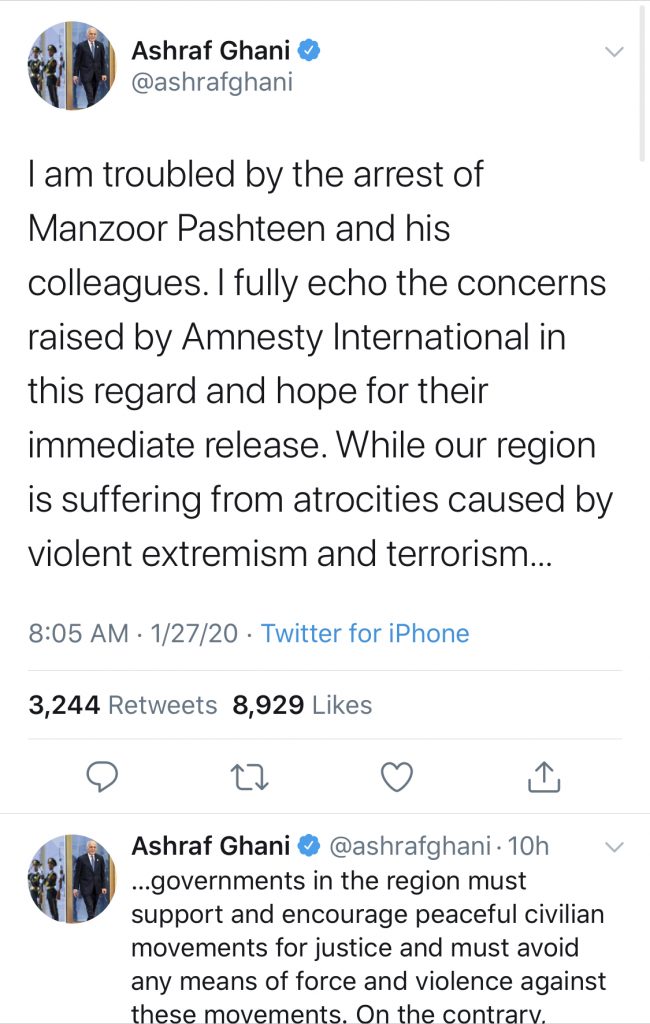The Pakistani state, whose identity is framed around religion, has always viewed any ethnic identity as a threat to its existence. Right from 1947, all Pashtun, Baluch, and Sindhi leaders have been viewed as separatists, traitors and anti-national. That is how the Pakistani state views the Pashtun Tahaffuz Movement (PTM) and its leader, Manzoor Pashteen, as well.


The arrest on Monday of Pashteen on five charges, including those of conspiracy and sedition, demonstrate how weak and frightened a state is that it is scared of a non violent movement that simply demands accountability for extrajudicial killings and kidnappings.
As The New York Times reported “Mr. Pashteen and his movement, widely known by the initials P.T.M., have presented one of the most influential challenges to the military’s dominance of Pakistan as it has cracked down on minorities, journalists and other critics in recent years. While the P.T.M. focused on demanding justice for the country’s sizable Pashtun minority, its influence quickly grew larger than the movement itself. The large crowds P.T.M. drew to the streets, and the boldness of its leadership in openly challenging the security forces, inspired other advocates to join in.”
Pashteen’s arrest was immediately condemned not only by international human rights watchdogs like Amnesty International but also Pakistan’s Human Rights Commission of Pakistan.

Leading Pakistani intellectuals and leaders also spoke out.



Even President Ashraf Ghani of Afghanistan and his predecessor Hamid Karzai tweeted asking for Pashteen’s release.

![]()





